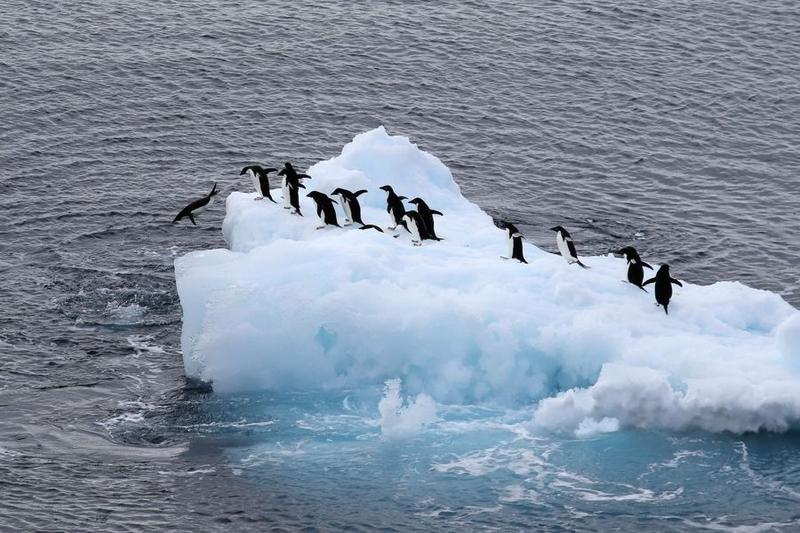 This file photo taken on Feb 15, 2019 shows penguins on an iceberg in Antarctica. (PHOTO / XINHUA)
This file photo taken on Feb 15, 2019 shows penguins on an iceberg in Antarctica. (PHOTO / XINHUA)
CANBERRA - Deep ocean currents around parts of Antarctica are slowing down decades earlier than expected as a result of climate change, an Australian research has revealed.
In a study published on Friday, a team from the Commonwealth Scientific and Industrial Research Organization (CSIRO) and Australian Center for Excellence in Antarctic Science (ACEAS) found that the Southern Ocean overturning circulation has slowed down by 30 percent since the 1990s.
The findings were published only two months after a separate study that predicted the circulation would slow by 40 percent by 2050.
Because of this, we expect a continuing decline of the deep ocean circulation and its oxygen levels. These declines are already significantly changing the deep ocean's structure and chemistry.
Kathy Gunn, Lead author of the study from ACEAS and CSIRO
Researchers said the new study showed the slowdown was already underway, warning of potential dire impacts including rising sea levels, altering weather patterns and depriving ecosystems of vital nutrients.
ALSO READ: Heat insurance offers climate change lifeline to poor workers
The circulation originates in cold dense waters off Antarctica's continental shelf and plays a key role in influencing the climate by driving a network of ocean currents that pump heat, carbon, oxygen and nutrients into the deep sea around the world.
"We're used to the idea that melting of the Antarctic Ice Sheet causes sea level rise. But this work also shows us that the impacts of melting glaciers in Antarctica extend all the way to the deep sea, affecting climate and ocean chemistry, as well as sea level," Steve Rintoul from CSIRO Environment said in a media release.
ALSO READ: UN report: Climate change greatest threat to Pacific region
The change has been caused by melting of Antarctic glacial ice making water off the shelf fresher and more buoyant, reducing the amount of oxygen-rich water that can sink to the deep sea, slowing the circulation.
Kathy Gunn, lead author of the study from ACEAS and CSIRO, said the freshening of the water is expected to accelerate as the Antarctic Ice Sheet is subjected to an increasingly warming climate.
READ MORE: Southern Europe braces summer of drought for climate change
"Because of this, we expect a continuing decline of the deep ocean circulation and its oxygen levels. These declines are already significantly changing the deep ocean's structure and chemistry," she said.



